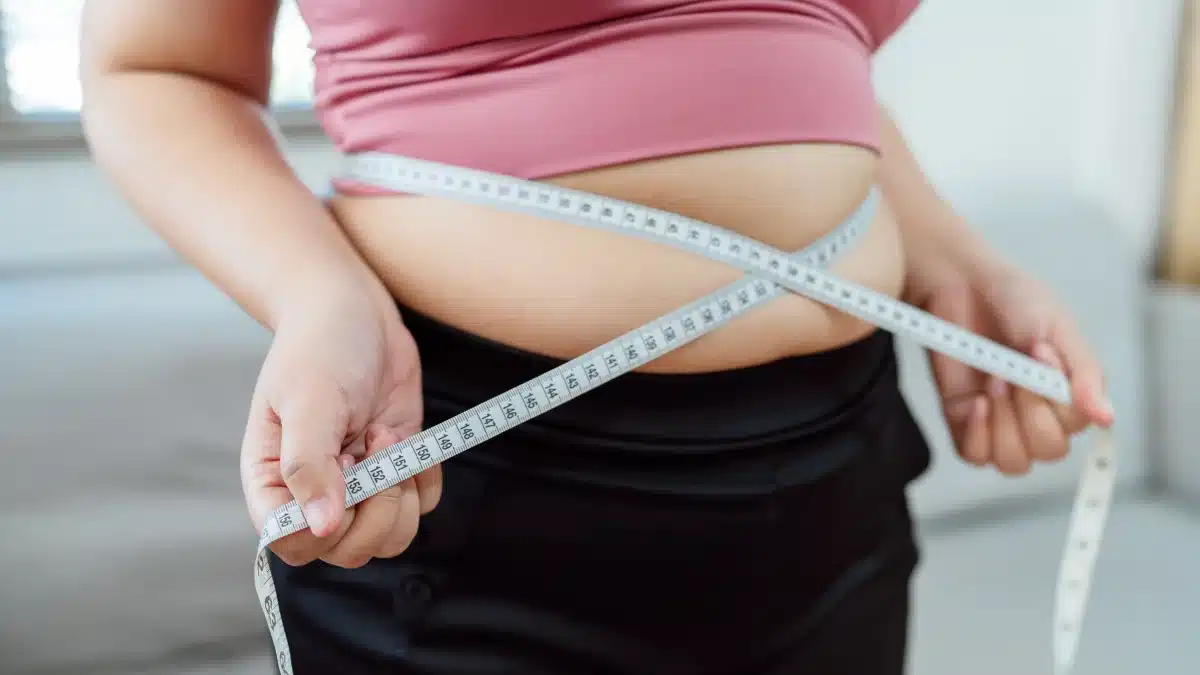IUD Weight Gain: Exploring Facts and Myths
The debate surrounding the association between Intrauterine devices (IUDs) and weight gain has sparked curiosity and concern among women seeking effective contraception.
As discussions echo through social circles and online forums, the question remains: what is it with IUD weight gain?
In this exploration, we delve into the existing research, clinical studies, and the nuanced perspectives surrounding the alleged link between IUDs and weight gain.
In this article, we aim to provide a concise and informed overview to empower individuals with accurate information as they navigate contraceptive choices and their potential effects on body weight.
Does IUD cause weight gain
It is a common belief that certain contraceptive methods may lead to weight gain.
However, research indicates that most individuals tend to experience weight changes during their reproductive years, regardless of the chosen birth control methods.
A comprehensive review conducted by the National Collaborating Centre for Women’s and Children’s Health on various studies related to weight gain and copper IUDs revealed no evidence suggesting that the use of IUDs affects weight.
According to information from the National Center for Biotechnology in 2017, hormonal forms of birth control are unlikely to result in significant weight gain.
If you suspect that your hormonal contraceptive may be contributing to weight gain, it is advisable to consult with your doctor.
It’s important to note that there are numerous contraceptive options available, and discussing your concerns with your doctor can help you explore alternatives.
Individual variability
Recognizing that responses to contraceptives can differ significantly among individuals is crucial.
Various factors, including genetics, hormonal sensitivity, and lifestyle, can impact how a person’s body responds to a specific contraceptive method.
Women who have concerns about potential weight gain are encouraged to indulge in discussions with their healthcare providers.
How to manage weight

Maintaining a decent weight is a lifetime commitment.
Preserving a healthy weight and avoiding significant weight fluctuations is crucial for your overall well-being.
If your goal is weight loss, consuming fewer calories than you burn daily is necessary.
Follow these guidelines for a balanced and nutrient-rich diet:
- Include a variety of vegetables, fruits, whole grains, low-fat dairy products, and lean protein sources
- Steer clear of high-fat meats, fried foods, and sweets
- Keeping yourself hydrated by drinking plenty of water and limiting high-calorie beverages such as soda
Avoid fad and elimination diets that may deprive you of essential vitamins, minerals, and nutrients.
Additionally, to a healthy diet, regular physical exercise is prime for attaining and maintaining a healthy weight.
A well-rounded weekly exercise routine should encompass the following:
- Aerobic exercises like running, walking, bicycling, dancing, or swimming
- Strength-training exercises using weights, resistance bands, or bodyweight exercises
- Stretching exercises for flexibility
According to the Centers for Disease Control and Prevention (CDC), at least 150 minutes of moderate-intensity aerobic activities every week is recommended for optimum health.
Conclusion
The discourse on the potential association between Intrauterine Devices (IUDs) and weight gain has fueled curiosity and concern among women considering contraception.
While the belief in contraceptive-induced weight gain exists, research and reviews suggest that weight
fluctuations during reproductive years are common, irrespective of birth control methods.
Individual responses vary due to factors like genetics and lifestyle.
It’s crucial for women with concerns to consult healthcare providers for personalized contraceptive choices.
Sustaining a healthy weight requires a lifelong dedication to a well-balanced diet, proper hydration, and regular exercise, as emphasized by the Centers for Disease Control and Prevention (CDC).
Frequently Asked Questions
Does having an IUD make it hard to lose weight?
No conclusive evidence suggests that having an IUD inherently makes it difficult to lose weight. While individual responses may vary, research indicates no significant association between intrauterine devices and weight loss challenges. Lifestyle factors and personal physiology play more substantial roles in weight management.
How can I avoid gaining weight on my IUD?
To prevent weight gain, incorporating lifestyle changes may be essential. This includes maintaining a regular exercise routine, adopting a healthy eating pattern, and exploring various methods for weight loss.
What are the disadvantages of IUD?
Menstrual periods may intensify, lengthen, or become more painful, although improvements in these symptoms may occur after a few months. It’s important to note that this method does not protect against Sexually Transmitted Infections (STIs), so it may be necessary to use condoms concurrently.
What is the biggest risk of IUD?
A potentially serious complication associated with an IUD is an infection, often stemming from the insertion procedure. It’s crucial to note that the risk of infection is generally minimal. In the rare event of an infection, it can typically be treated without necessitating the removal of the IUD.
WowRx uses only high-quality sources while writing our articles. Please read our content information policy to know more about how we keep our content reliable and trustworthy.






